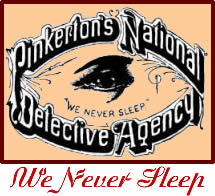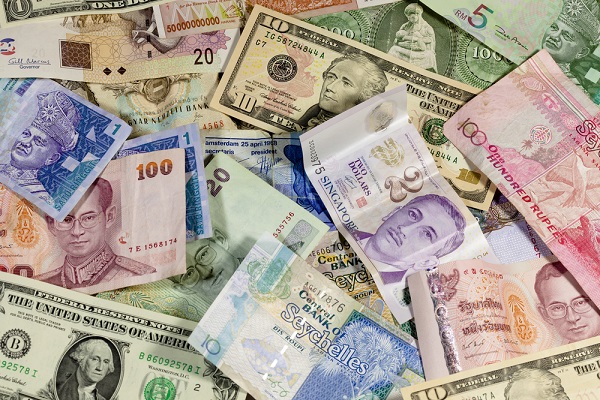
The Probability Broach, chapter 6
In the previous chapter of TPB, Win Bear stumbled into a parallel universe, discovered he had a doppelganger there, and sought him out – only to be near-fatally wounded in a drive-by shooting just as he found his other self’s home.
This chapter flashes back, showing these events from the perspective of this universe’s Edwin Bear. The text calls him “Ed”, to differentiate him from Win.
Ed was investigating a robbery at a company called Paratronics, but he’d had his fill of work and was planning a vacation:
One Freeman K. Bertram of Paratronics, Ltd, had a problem: someone had gotten away from a company warehouse, laden with a half-ton of valuable parts and equipment…
Ed might not be the best-known consulting detective in the land, nor the most highly paid, but he was clearly headed in that direction at an age most North Americans considered young. There were more clients than he really had time for, and although he’d worked for Paratronics, Ltd. before, and this sounded interesting, plenty of schedule-juggling had gone into shaking three vacation weeks loose.
This universe’s Ed Bear is a private “consulting detective”, the closest thing that L. Neil Smith’s anarcho-capitalist society has to police. But you have to ask: What, exactly, does this job entail?
Ed has no official legal authority, because there’s no legal system. There are no courts to back him up; he can’t get search warrants or subpoenas. He can’t enter anyone’s property without permission or compel anyone to cooperate with him if they don’t want to. He can’t arrest criminals, even if he catches them red-handed.
Also, there are no public records in this society. There are no IDs he can check, no databases he can consult. As we’ll see later, the North American Confederacy has never even heard of fingerprints. What evidence does he acquire, how does he get it, and what does he do with it? The book never really answers this.
You might point out that the phrase “consulting detective” is meant to echo Sherlock Holmes, who also lacked these powers. But Holmes did have police allies he could call on whenever the situation required it.
Ed is in his garage, getting ready to leave, when he hears a commotion outside:
Beneath the half-open door, a baggily clad form ran toward him then slammed violently into the slowly rising panel. Spots of sunlight pierced the door as a brilliant dotted line raced toward Ed… he dived, flinging back his sportcloak for the .375 on his hip. The shadow, faceless against outdoor light, slumped and fell in a pool of splattered blood.
A huge Frontenac steamer crabslipped up the driveway, bullets streaming. Ed pulled the trigger. Heavy slugs spat toward the steamer—five! six!—and silenced its machine gun… It fishtailed clumsily across the lawn and limped away.
“Death and Taxes! What was that about?” Enter a frail-looking elderly woman, 50 caliber Gabbet Fairfax smoking in her hand. She clutched her bathrobe together, shoving the monstrous weapon into a pocket, where it hung dangerously.
“I haven’t the slightest idea, Lucy.” Ed swapped magazines and holstered his gun, cautiously approaching the inert figure lying in the doorway. “Give me a hand. This fellow’s badly hurt!” He gently rolled the body over and looked down. At himself.
And as we’ve covered, Ed and Lucy drag Win inside and treat his wounds for free, because they’re just that nice – as opposed to, say, rolling his body over the property line into the gutter, hosing his blood off the driveway, and going back inside and pretending they saw nothing.
Back to Win’s perspective. While convalescing, he reminisces about the first time he shot someone, back in his own world:
I’d run out of cigarettes about 2 A.M., pulled pants on over pajama bottoms, and strolled over to one of those little twenty-four-hour groceries with inflated prices and lonely teenage clerks. Only this one wasn’t lonely—not with a 25 automatic pressed against her temple. He stood well away, gun arm fully extended, prancing nervously as he watched her shove small bills into a wrinkled paper bag, preparing herself for death.
You’re a cop around the clock. On my own time, I carried a beat-up .45 S & W sawed off to three inches. The door stood open, ten yards away—I didn’t dare get closer. I knelt, braced my hands on the rear corner of his ’57 Chevy, and pulled the trigger. She screamed for thirty minutes.
…Many a cop sees thirty years without firing a shot in anger, others quit cold after their first. You’d be surprised how often. Some few start enjoying it, but we try to weed them out—too bad the feds don’t follow the same policy.
L. Neil Smith seems to agree that it’s a bad idea to have law enforcement officers who enjoy killing people. The problem, of course, is that his ancap universe has no means to “weed out” these psychopaths. Whoever has a gun and is willing to use it can do whatever their blackened heart pleases.
I’m not for capital punishment, a useless, stupid ritual, degrading to everyone involved—except at the scene and moment of the crime, preferably at the hands of the intended victim.
L. Neil Smith takes pains to portray Win in the most heroic possible manner: an off-duty cop using deadly force to save a humble clerk’s life from an armed robber. It’s the Platonic ideal of the scenario that all gun worshippers want us to imagine.
But those situations – the mythologized “good guy with a gun” – are vanishingly rare in reality. Real-world experience shows that, when everyone is armed, what happens more often is that two people get into an argument which escalates to them drawing and shooting at each other. Both are culpable, but the one who lives gets to frame the situation as self-defense. Or angry, violent people whip out a gun and start blasting away for no good reason, just because someone annoyed them or triggered their racist paranoia.
The real purpose of these “good guy with a gun” scenarios isn’t to win over skeptics with the case for gun ownership. It’s to feed the egos of people who already own guns. It tells them that they’re lone heroes in a dangerous world, self-deputized to defend law and order from the scary outsiders all around. In that sense, this narrative may well make them feel less inhibited, and therefore, makes gun violence more common.
New reviews of The Probability Broach will go up every Friday on my Patreon page. Sign up to see new posts early and other bonus stuff!
Other posts in this series:





